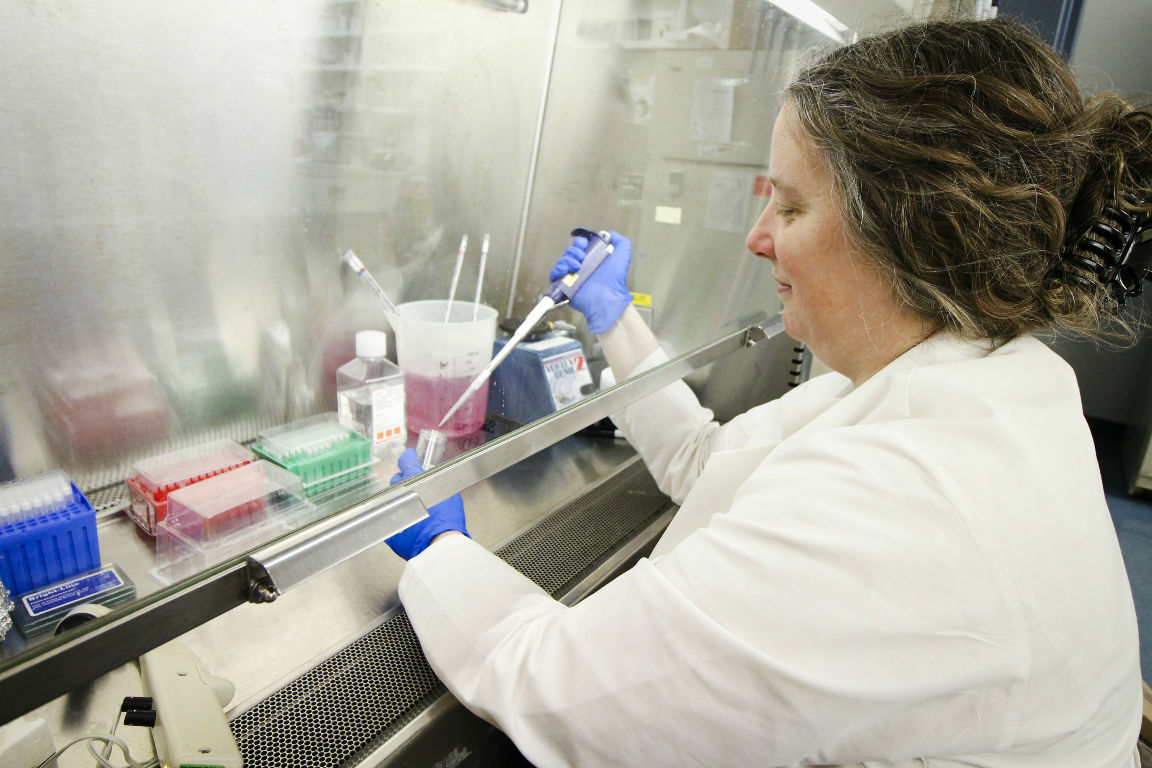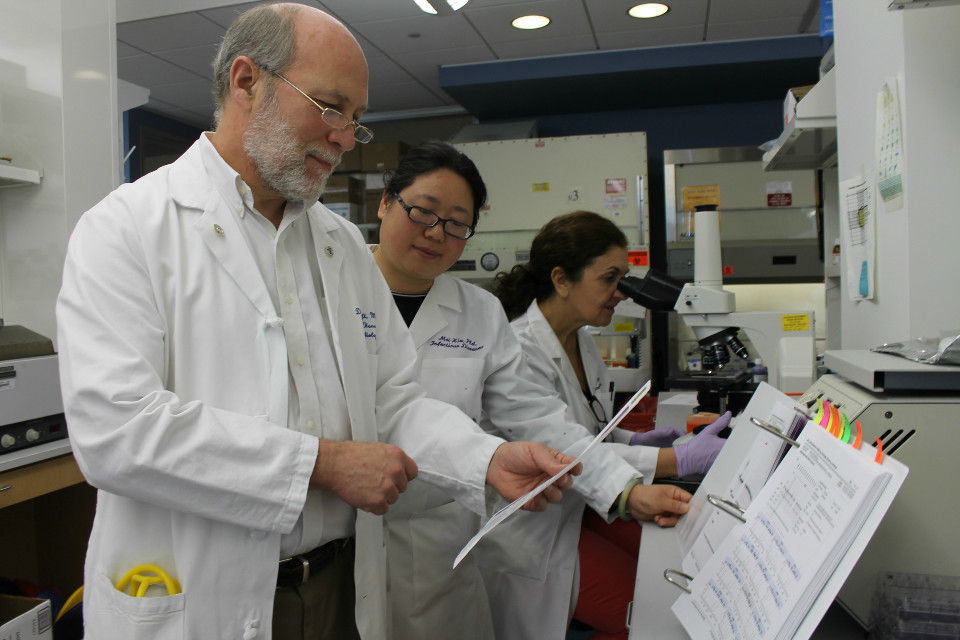Stopping Zika: SLU Tackles Global Health Threat
Before mosquitoes in the continental U.S. began transmitting Zika virus in Florida, the National Institutes of Health tapped Saint Louis University scientists to study the infection that can cause devastating birth defects in babies.
SLU researchers will conduct two studies -- one of the first human clinical trials of an investigational vaccine to prevent Zika and a natural history study to learn about the body’s immune response when exposed to Zika.
One of Only Nine Institutions Selected
Since 1989, the federal government has funded vaccine research at SLU, which has a deep bench of infectious diseases experts whose work shapes how our nation protects public health. Its scientists are world-renowned for their expertise in diseases including pandemic influenza, smallpox, tuberculosis and mosquito-borne illnesses.
SLU’s Vaccine and Treatment Evaluation Unit is one of nine elite institutions selected in 2013 by the NIH to develop and evaluate vaccines, drugs and diagnostics that protect people from infectious diseases and emerging threats.
“We’re in the midst of a global public health emergency because of how fast the Zika virus has spread. Our ability to rapidly respond to emerging threats is part of why VTEUs exist – to protect the public in a timely fashion,” said Daniel Hoft, M.D., Ph.D., leader of one of the Zika studies at SLU and director of SLU’s division of infectious diseases.
“Our work is important for national preparedness, national protection and, most importantly, to prevent terrible birth defects in children.”
How Can the Body Protect Itself From Zika?
Hoft leads SLU’s participation in a multi-site study that examines the immune responses of 200 volunteers who have been diagnosed with or have symptoms of Zika. He will conduct laboratory work, analyzing blood specimens of study volunteers to learn how the body’s immune system responds to Zika virus infection.
SLU already has received $1.3 million in federal funding for the research, an award that could climb as high as $2.6 million, depending on the number of cases SLU scientists ultimately study.
Hoft will focus on the role of T cells, a type of white blood cell that recognizes the presence of a foreign invader and destroys it or helps other cells initiate an attack. He will explore if and how T cells protect the body from Zika, what part of the virus provokes a response and the impact of T cells on the progression of the disease.
“We’re looking at what part of the virus would make a good target for a vaccine,” Hoft said.
We need a vaccine to protect people from this emerging infectious disease that can cause microcephaly and other severe brain defects in babies.
Sarah George, M.D.
SLU researchers also are preparing to launch a human vaccine study later this year, conducting a phase one trial of an investigational vaccine at SLU and in Puerto Rico, a territory where local mosquitoes are transmitting Zika virus infection.
SLU will test a vaccine candidate, which has undergone extensive animal testing and was developed by the Walter Reed Army Institute of Research, the largest biomedical research facility administered by the U.S. Department of Defense.
“We need a vaccine to protect people from this emerging infectious disease that can cause microcephaly and other severe brain defects in babies,” said Sarah George, M.D., a flavivirus expert who is the principal investigator for the study and an associate professor of infectious diseases.
“We are having a major Zika outbreak in the Americas, and Zika infection in a pregnant woman can be devastating for her developing baby. We eagerly embrace the call to serve on the front line of addressing this serious health threat.”
Both projects are authorized under NIH contract no. HHSN272201300021I.
About the Zika Virus
While Zika most often is spread by Aedes mosquitoes, which also transmit dengue and chikungunya viruses, it also can be sexually transmitted.
As of late June, 45 states have reported cases of Zika, contracted by people who have traveled or had sexual contact with someone who traveled to places where Zika is circulating locally. Also according to the Centers for Disease Control and Prevention, mosquitoes that can spread Zika already are in parts of 30 states, mostly in the south but as far north as San Francisco, Kansas City and New York City.
About 80 percent of those who contract Zika have no symptoms. Those who feel sick typically have symptoms like fever, headache, rash, joint pain or red eyes that last four to seven days. A small number of those infected develop Guillain-Barre Syndrome.
The most significant health problems affect unborn babies whose mothers contract Zika during pregnancy. The developing babies of infected mothers may die or develop serious complications including microcephaly (abnormally small brains) and vision problems.
Established in 1836, Saint Louis University School of Medicine has the distinction of awarding the first medical degree west of the Mississippi River. The school educates physicians and biomedical scientists, conducts medical research, and provides health care on a local, national and international level. Research at the school seeks new cures and treatments in five key areas: infectious disease, liver disease, cancer, heart/lung disease, and aging and brain disorders.



















